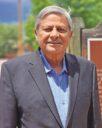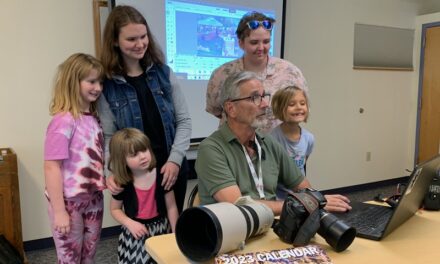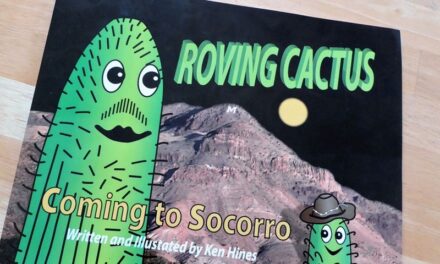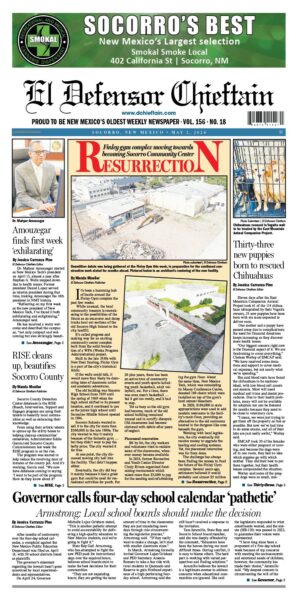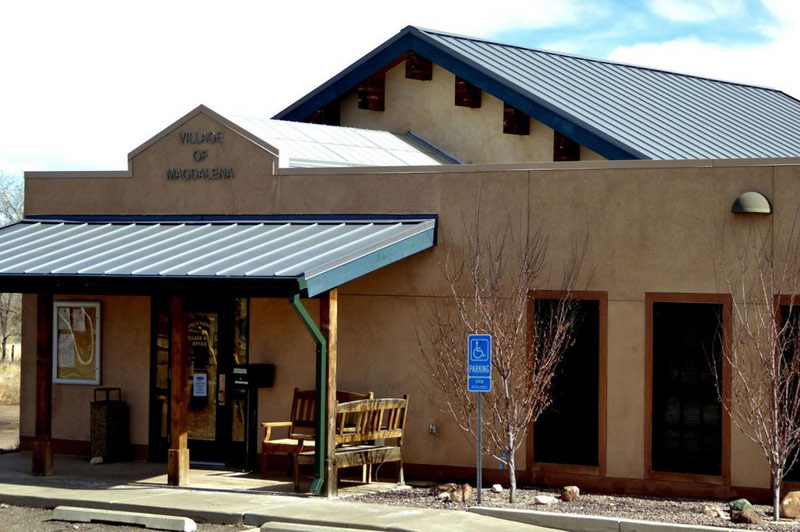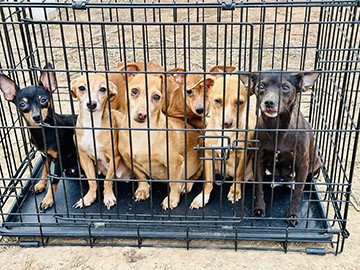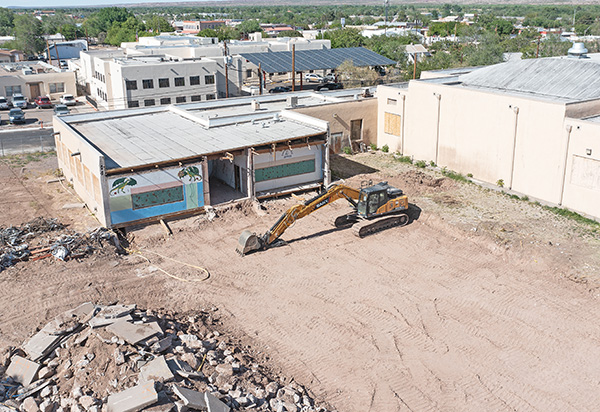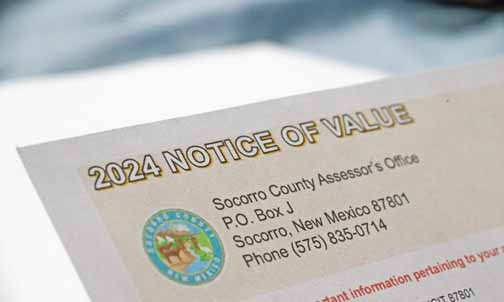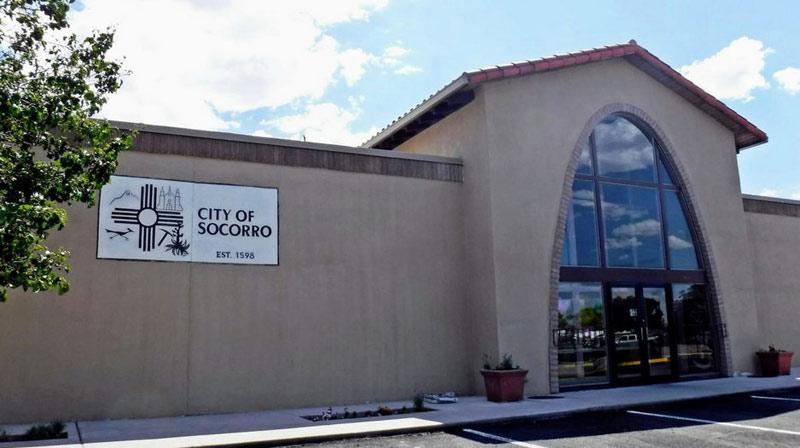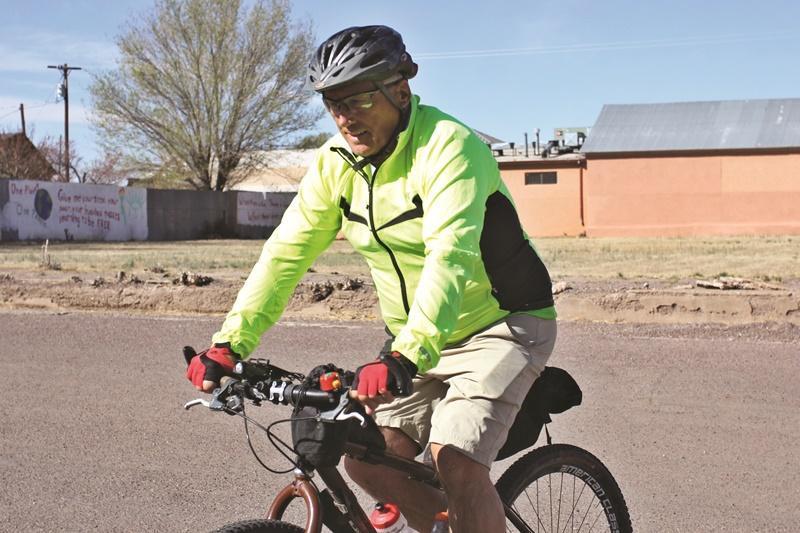
Mark Scotch rode out of Magdalena Monday. The cyclist is on a cross-country journey to raise awareness of living organ donation.
Cathy Cook | El Defensor Chieftain
Mark Scotch has taken to his mountain bike to prove that even a kidney short, he can still do what he loves. Scotch is raising awareness of living organ donation with the “Organ Tail,” a cycling journey from San Diego to Lubbock, Texas.
Monday morning, Scotch rode out of Magdalena. He expected to be in Albuquerque by Wednesday.
In 2020, Scotch met Hugh Smith, a jockey who suffered regular injuries from his work and took ibuprofen to manage that pain. The ibuprofen damaged his kidneys, sending him into renal failure and causing him to start dialysis. The day they met, Scotch decided to give Smith a kidney.
Scotch said he thinks his sister-in-law donating 14 years earlier may have made him more open to the idea. Scotch and his wife also lost their first son at 15 months old. It always bothered Scotch’s wife Lynn that the couple had not been given the opportunity to donate their son’s organs.
“You know how that is, something like that happens it feels so senseless. At least if you can donate the organs you feel like some good can come out of it,” Scotch said.
So, when he saw the opportunity to donate 40 years later, Scotch was determined not to pass it up.
“If I have a body part that I can do without that helps you live and makes your life normal, why not? That’s kind of a pragmatic look at it. It just seems like it’s a solvable problem, why not.”
Instead of a direct kidney donation, Scotch donated through the voucher system. This allows someone who is not a match to their intended donor to donate a kidney to someone else on the National Kidney Register who is a match. Scotch named Smith as the person he wanted to benefit from the donation, which gave Smith higher priority on the National Kidney Registry transplant list.
Scotch was matched with someone in New York and donated his kidney in 2020. Smith was matched with a kidney donor in California the next year.
Scotch has been cycling cross country since to raise awareness of the urgent need for living donors and show the quality of life that’s possible after donation.
“After my surgery I went from Wisconsin to Louisiana like I originally planned, but I was short a kidney and my buddy was up a kidney.”
Since then, Scotch has cycled from Martha’s Vineyard back to Wisconsin, to symbolize his kidney traveling to New York. Now he’s traveling from Southern California to Louisiana. This leg of the trip will end in Lubbock. He’ll pick up the ride from Lubbock to New Orleans in winter.
“The main thing I try to share is that people are dying every day and there’s got to be millions of people out there that are healthy enough to donate. We could wipe out that waitlist if we really wanted. I think if enough people knew. Then you can go back to your life, whatever that is. I’m doing this all on one kidney.”
Some kidney donors are cautioned to watch salt intake and protein intake, since kidneys filter the blood. Scotch said his personal diet and exercise routines have not had to change after the kidney donation.
Scotch’s wife has also been evaluated for kidney donation and was matched with a recipient in 2020. However, the day after she was matched, the living donor program was shut down due to the pandemic. Since then, both Scotch and his wife have gotten mild Covid cases. Post Covid, her platelet levels dropped.
“They ruled out anything they can think of, so now we’re in a situation where she’s getting tested monthly for her platelet levels and a decision will have to be made by the surgeons whether they think that’s dangerous or not, or her levels might come up again.”
Local Need
Alamo resident Lee Guerro has kidney failure and is on the waiting list to receive a kidney.
Guerro has been on dialysis for two years, and in that time the medical and travel expenses have only become more of a burden, especially as gas prices rise. Still, he never misses an appointment, because he’s determined to see his grandkids graduate from high school.
Donations to help with Guerro’s medical and travel expenses can be made at First State Bank in Magdalena.




